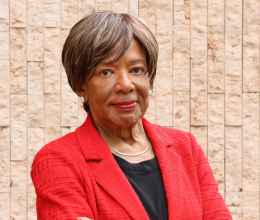
In 2022, as part of our Systemic Equality Agenda, the ACLU filed a lawsuit challenging Boulder’s ordinance that criminalizes the city’s unhoused residents by making it a crime to sleep outside with a blanket. The ordinance, often called the “Blanket Ban,” forbids living or sleeping outside while using “any cover or protection from the elements other than clothing.” B.R.C. § 5-6-10(d). The Blanket Ban criminalizes Boulder’s houseless residents’ right to exist in Boulder by targeting the unavoidable impacts of extreme poverty. Officers issuing criminal citations under the Blanket Ban have told the individuals to “get out of Boulder.”
The lawsuit alleges that Boulder’s ordinance violates Colorado’s constitutional prohibition on cruel and unusual punishment. This is, in part, because Boulder fails to ensure that there is adequate and available indoor shelter for its houseless residents before criminally charging them for sleeping outside with a blanket. Boulder has acknowledged that there is not sufficient indoor shelter capacity to support the people experiencing homelessness in Boulder. In addition, program rules, restrictions, and structural realities exclude many houseless residents from accessing the limited indoor shelter that does exist. Meanwhile, for most houseless adults, Boulder has no indoor shelter option at all during the day. On any given day or night, many houseless residents are left with no way to live in Boulder without engaging in conduct the city has made a crime.
The lawsuit was filed against the City of Boulder and its Chief of Police on behalf of several formerly houseless residents of Boulder who were criminally charged under the Blanket Ban and face the imminent threat of future prosecution. Additional plaintiffs include a Boulder nonprofit serving unhoused people and Boulder taxpayers whose money is used to enforce the Blanket Ban in violation of the state Constitution. The lawsuit challenges Boulder’s enforcement of the Blanket Ban as cruel and unusual punishment in violation of the Colorado Constitution, art. II, § 25, and art. II, § 3.
On February 23, 2023, the court denied the City’s attempt to dismiss the lawsuit, holding that imposing criminal penalties on people for basic life activities that are impossible to avoid – like sleeping with a blanket – adequately stated a violation of the Colorado Constitution.
On April 10, 2024, the court granted the City's request to stay the case pending the result in City of Grants Pass v. Johnson, a United States Supreme Court case addressing whether camping bans violate the Eighth Amendment's prohibition on cruel and unusual punishment. After the decision in Grants Pass was issued, the court ordered the parties to brief its impact on this lawsuit. The ACLU of Colorado maintains that the reasoning in Grants Pass is unpersuasive, and the Colorado Constitution protects unhoused people from being prosecuted for basic survival activities.
On December 6, 2024, the district court judge dismissed our remaining claims, declining to find the Colorado Constitution's "cruel and unusual punishment" broader than the Eighth Amendment. Based on the reasoning articulated in Grant's Pass, the court concluded that the Blanket Ban constitutes a punishment based on conduct not status, and is therefore not prohibited by Article II, Section 20 of the Colorado Constitution.
PRESS RELEASE:
ACLU Sues Boulder Over 'Camping' Bans That Punish People Experiencing Homelessness

